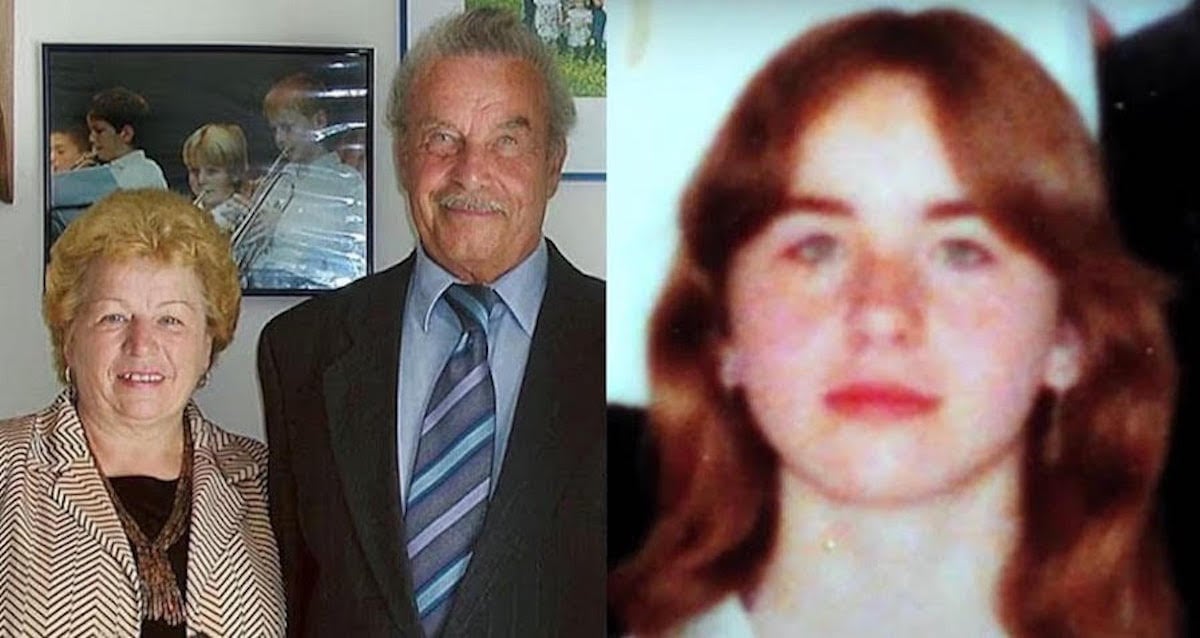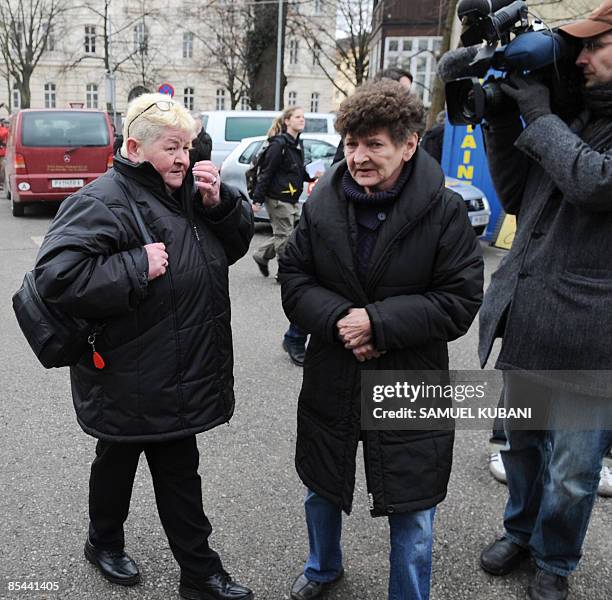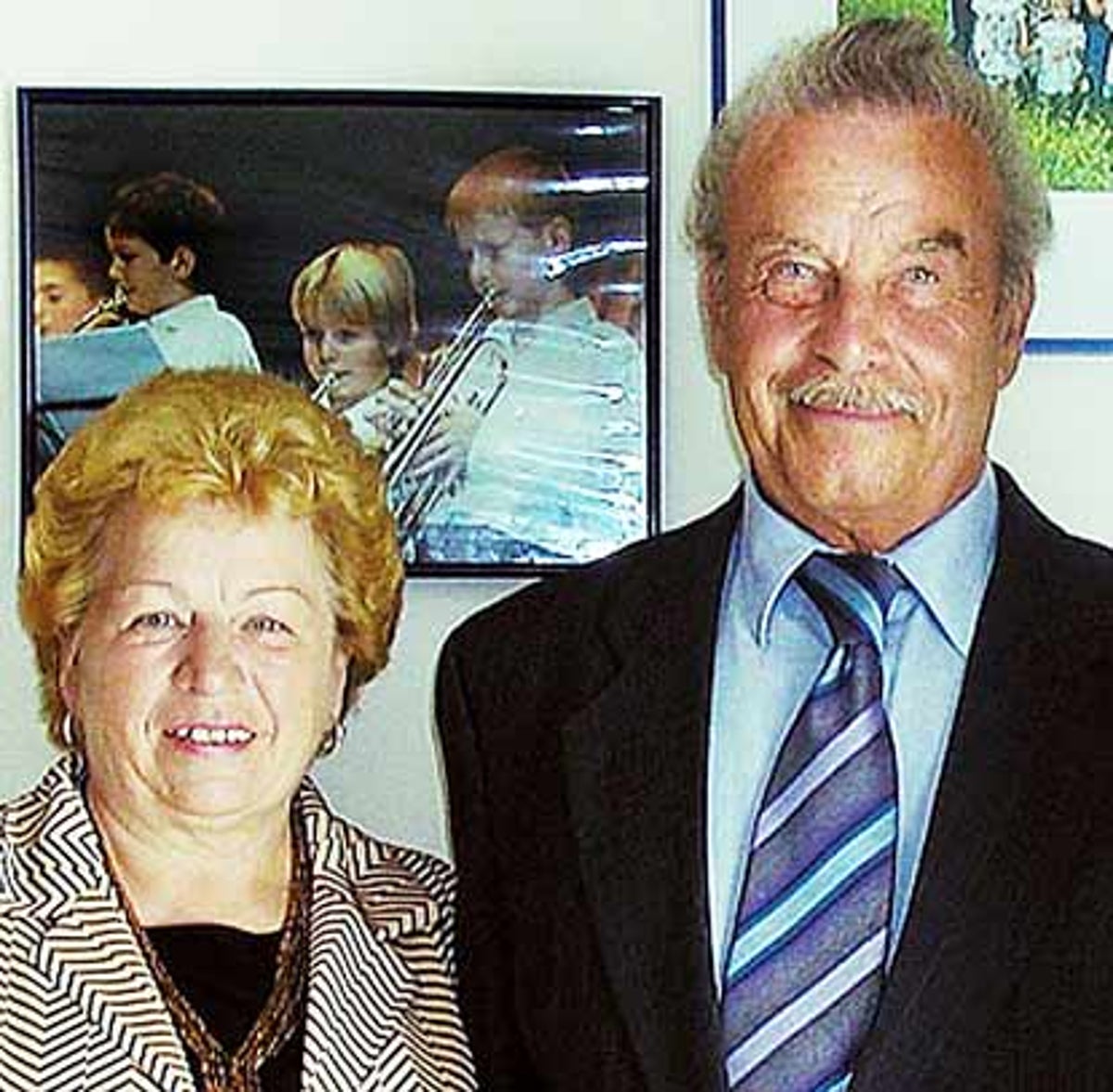Rosemarie Fritzl: The Untold Story Of Survival, Strength, And Resilience
Let’s dive straight into the story that shocked the world—a story of survival, strength, and unimaginable resilience. Rosemarie Fritzl’s name became a global headline after the horrifying truth of her captivity came to light. Her story is not just about the darkness she endured but also about the light she found within herself to fight back and rebuild her life. It’s a tale that will make you question humanity, yet inspire you to never lose hope.
Rosemarie Fritzl’s case wasn’t just another news story; it was a wake-up call for society. The world watched in disbelief as the truth unfolded about her years of imprisonment and the unimaginable horrors she faced. This isn’t just a story—it’s a lesson in human endurance, a reminder of the importance of justice, and a call to action for all of us to be more vigilant.
As we dig deeper into Rosemarie’s journey, we’ll explore the details that many might not know. From her early life to the harrowing years she spent in captivity, and finally, her journey toward reclaiming her life, this article will give you a comprehensive look at her story. It’s not just about the facts—it’s about understanding the person behind the headlines.
Read also:Manuela Escobar Rising Star Of The Entertainment Industry
Biography of Rosemarie Fritzl: A Life Before and After Captivity
Early Life: Who Was Rosemarie Fritzl Before the Nightmare?
Rosemarie Fritzl’s life before the nightmare began wasn’t much different from any other child growing up in Austria. Born on August 12, 1974, in Amstetten, Austria, Rosemarie lived a relatively normal life until her teen years. Her father, Josef Fritzl, was a seemingly ordinary man, and her mother, Johanna Fritzl, was a housewife. Little did anyone know that beneath this facade lay a monster waiting to unleash his darkest desires.
Before the infamous events that would change her life forever, Rosemarie was described by friends and family as a bright and cheerful young girl. She attended school regularly and had dreams of a future filled with promise. But as fate would have it, her world was about to take a dark turn.
Rosemarie Fritzl’s Captivity: The Horrific Truth
In 1984, at the age of just 18, Rosemarie Fritzl’s life took a drastic turn when she was abducted by her own father, Josef Fritzl. What followed was a nightmare that lasted for 24 years. Josef Fritzl, a man who appeared normal to the outside world, had built a hidden basement beneath their family home. This basement became Rosemarie’s prison, where she endured unimaginable abuse and isolation.
During her captivity, Rosemarie gave birth to seven children, all fathered by Josef. These children grew up in the same dungeon-like conditions, never knowing the outside world. It’s a story that defies belief, yet it’s all too real.
Rosemarie Fritzl’s Journey to Freedom: The Breaking Point
The turning point came in April 2008 when one of Rosemarie’s daughters, Kerstin, fell ill. Josef Fritzl, realizing the severity of Kerstin’s condition, finally sought medical help. It was during this hospital visit that the truth began to unravel. Kerstin’s DNA tests revealed a shocking connection to Josef Fritzl, leading authorities to uncover the hidden basement and the horrors within.
Rosemarie’s liberation marked the beginning of a new chapter in her life. But the road to recovery would be long and challenging. The world watched in awe as she emerged from the shadows of her past, determined to reclaim her life and find justice for herself and her children.
Read also:Is Sam Elliott A Democrat Or Republican The Truth Behind The Silver Screen Legend
Understanding the Impact: Psychological and Emotional Scars
The Psychological Toll of Captivity
Living in such extreme conditions for over two decades took a severe toll on Rosemarie’s mental health. The trauma she endured left deep scars that would take years to heal. Experts in psychology and trauma have studied her case extensively, shedding light on the long-term effects of such captivity.
Some of the psychological challenges Rosemarie faced included severe anxiety, depression, and post-traumatic stress disorder (PTSD). These conditions required intensive therapy and support from mental health professionals. Her journey toward mental healing became a testament to her resilience and strength.
Emotional Healing: Finding Light in the Darkness
Emotionally, Rosemarie had to navigate a complex web of feelings. Anger, betrayal, and sadness were just the tip of the iceberg. However, through it all, she found the strength to forgive and move forward. Her ability to find light in the darkest of situations is a lesson for us all.
Rosemarie’s emotional healing journey wasn’t just about her; it was about her children too. Ensuring they understood their past while focusing on their future was a delicate balancing act that required immense strength and compassion.
Rosemarie Fritzl’s Children: The Next Generation
Rosemarie’s children, fathered by her captor, faced their own unique challenges. Growing up in such an isolated environment, they had little understanding of the outside world. Once freed, they had to adapt to a life they had never known, filled with new experiences and challenges.
Efforts were made to ensure their well-being and education. Social services and mental health professionals played a crucial role in helping them adjust to their new reality. The resilience displayed by Rosemarie and her children in the face of such adversity is nothing short of remarkable.
Justice Served: Josef Fritzl’s Conviction
Josef Fritzl’s trial was a high-profile case that captured the attention of the entire world. The evidence against him was overwhelming, and in May 2009, he was sentenced to life in prison without the possibility of parole. The verdict was a moment of justice for Rosemarie and her children, bringing a sense of closure to a harrowing chapter in their lives.
The legal proceedings shed light on the severity of Josef’s crimes and the importance of holding perpetrators accountable. It also highlighted the need for stronger laws and protections to prevent such atrocities in the future.
Rosemarie Fritzl’s Legacy: A Beacon of Hope
Rosemarie Fritzl’s story has become a symbol of hope and resilience. Her ability to rise above the horrors she endured serves as an inspiration to countless others who have faced similar challenges. Her legacy extends beyond her personal journey; it’s a call to action for society to address issues of abuse and captivity.
Through her story, Rosemarie has brought attention to the importance of mental health support, victim advocacy, and the need for justice systems that protect the vulnerable. Her courage in sharing her story has empowered others to speak out and seek help.
Lessons Learned: What Rosemarie’s Story Teaches Us
The Importance of Awareness and Vigilance
Rosemarie’s case underscores the importance of awareness and vigilance within our communities. It’s a stark reminder that abuse and captivity can happen right under our noses, often hidden in plain sight. By staying informed and reporting suspicious activities, we can help prevent such tragedies from occurring.
Support Systems for Survivors
Survivors of abuse and captivity need robust support systems to help them rebuild their lives. This includes access to mental health services, legal assistance, and community support. Rosemarie’s story highlights the critical role these systems play in the healing process.
Data and Statistics: Understanding the Bigger Picture
Statistics show that cases of domestic abuse and captivity are more common than many realize. According to the World Health Organization, one in three women worldwide experiences physical or sexual violence in their lifetime. These numbers are alarming and underscore the need for greater awareness and action.
Organizations like the United Nations and various NGOs are working tirelessly to address these issues. Their efforts focus on education, advocacy, and policy changes to create a safer world for everyone.
Call to Action: What Can You Do?
Rosemarie’s story is a call to action for all of us. Whether it’s supporting survivors, advocating for stronger laws, or simply being more aware of the signs of abuse, we all have a role to play. Here are a few things you can do:
- Stay informed about issues of abuse and captivity.
- Support organizations working to combat these issues.
- Report suspicious activities to authorities.
- Offer support to survivors in your community.
Your actions, no matter how small, can make a big difference in someone’s life.
Conclusion: A Story of Triumph Over Adversity
Rosemarie Fritzl’s story is one of triumph over adversity. From the depths of despair, she emerged with a strength that inspires us all. Her journey reminds us of the resilience of the human spirit and the importance of justice, support, and compassion.
We encourage you to share this article, leave a comment, or explore other stories on our site. Together, we can continue to raise awareness and make a positive impact in the world. Remember, every voice matters, and every action counts.
Table of Contents
- Biography of Rosemarie Fritzl
- Early Life: Who Was Rosemarie Fritzl Before the Nightmare?
- Rosemarie Fritzl’s Captivity: The Horrific Truth
- Rosemarie Fritzl’s Journey to Freedom: The Breaking Point
- Understanding the Impact: Psychological and Emotional Scars
- Rosemarie Fritzl’s Children: The Next Generation
- Justice Served: Josef Fritzl’s Conviction
- Rosemarie Fritzl’s Legacy: A Beacon of Hope
- Lessons Learned: What Rosemarie’s Story Teaches Us
- Data and Statistics: Understanding the Bigger Picture
- Call to Action: What Can You Do?
- Conclusion: A Story of Triumph Over Adversity


